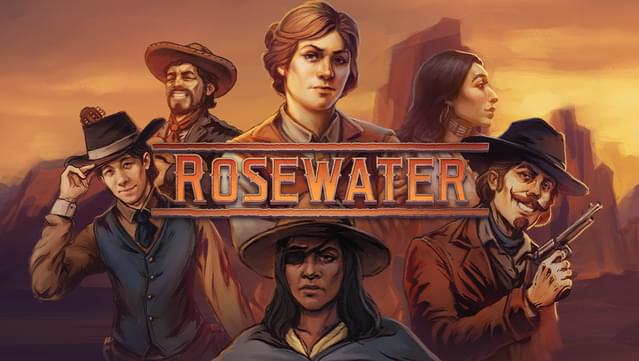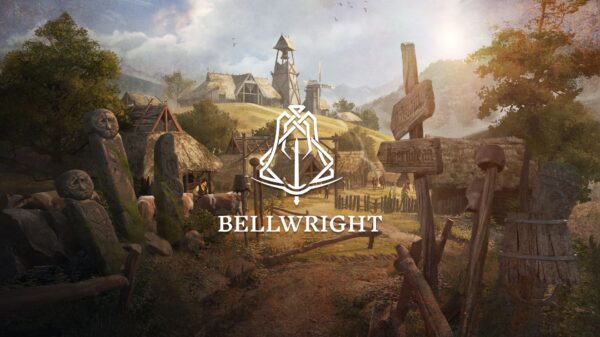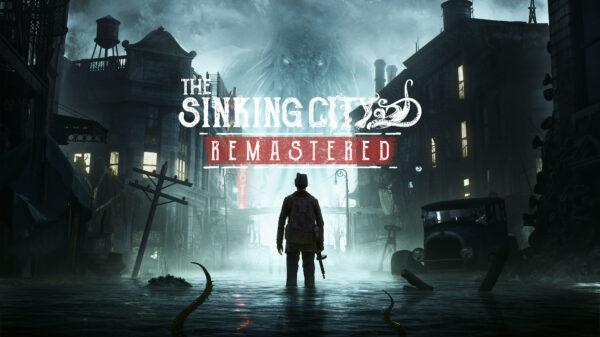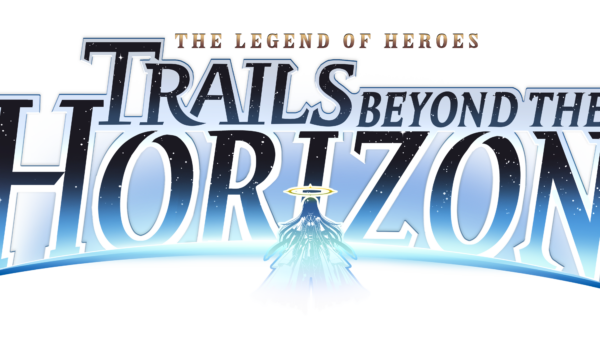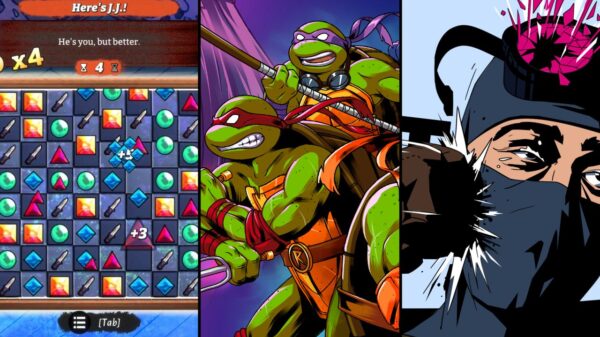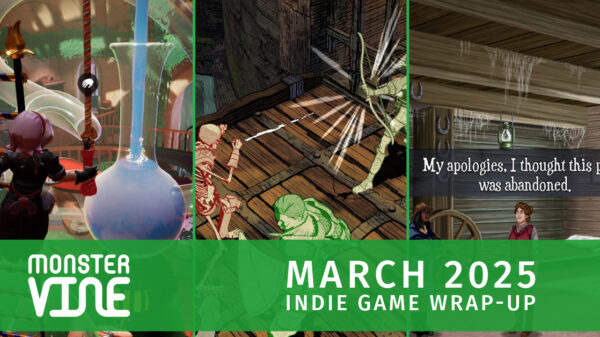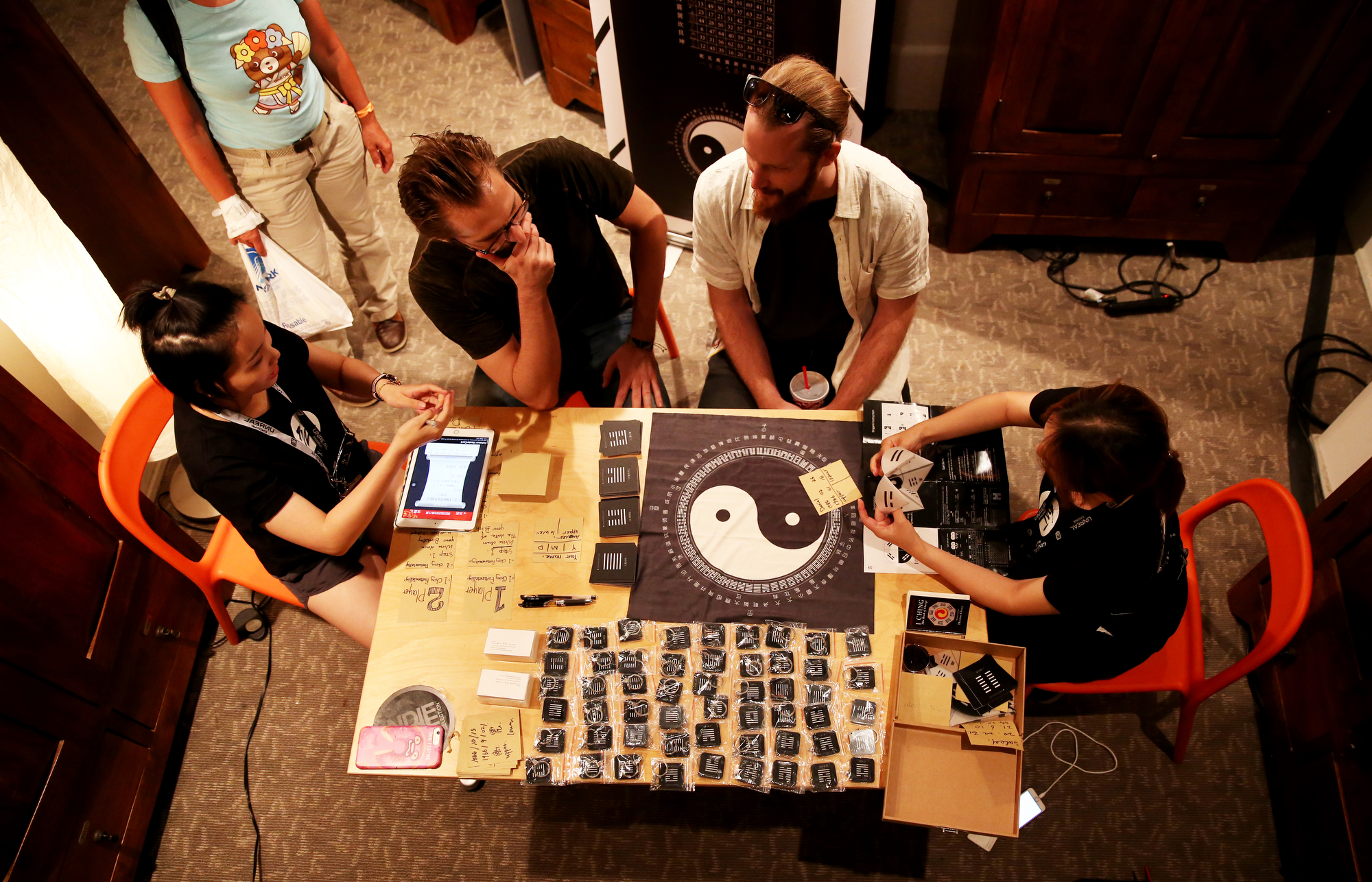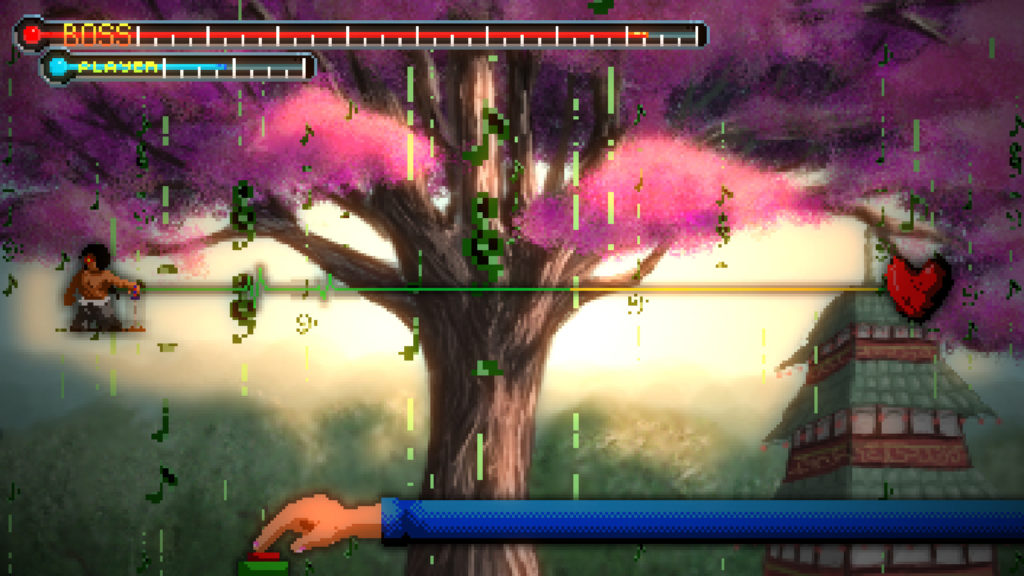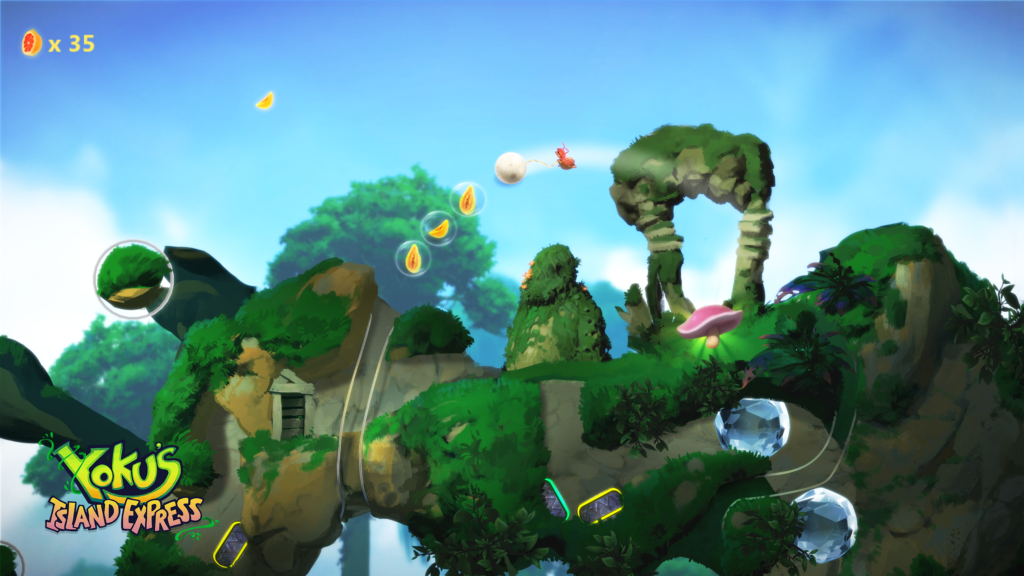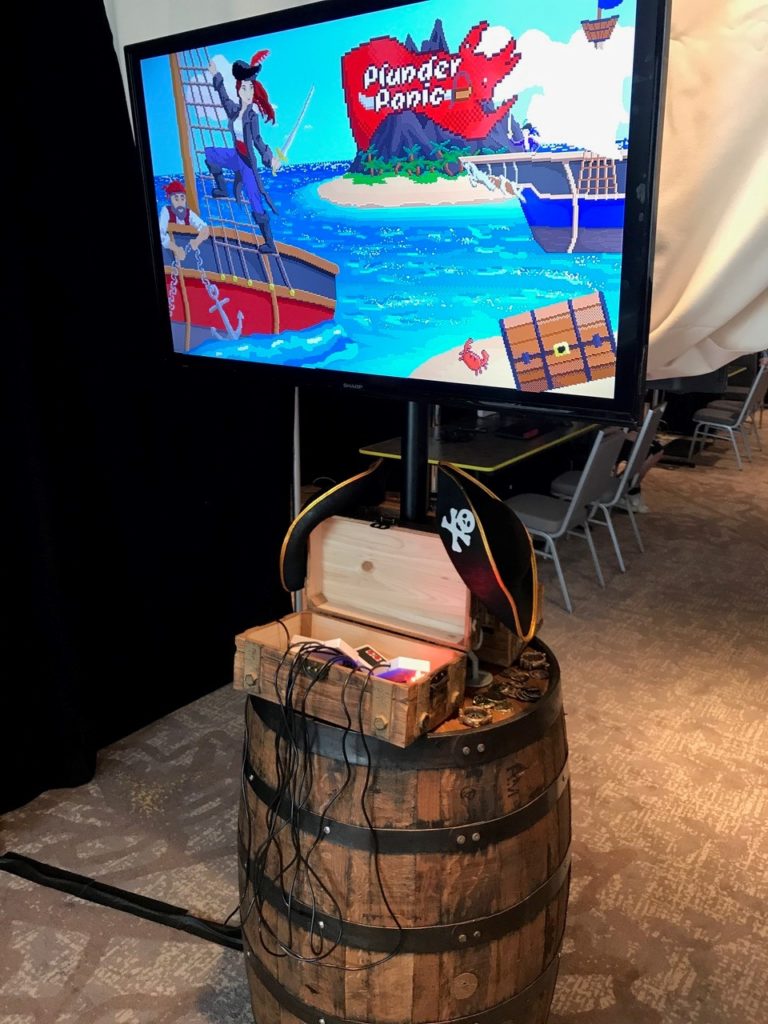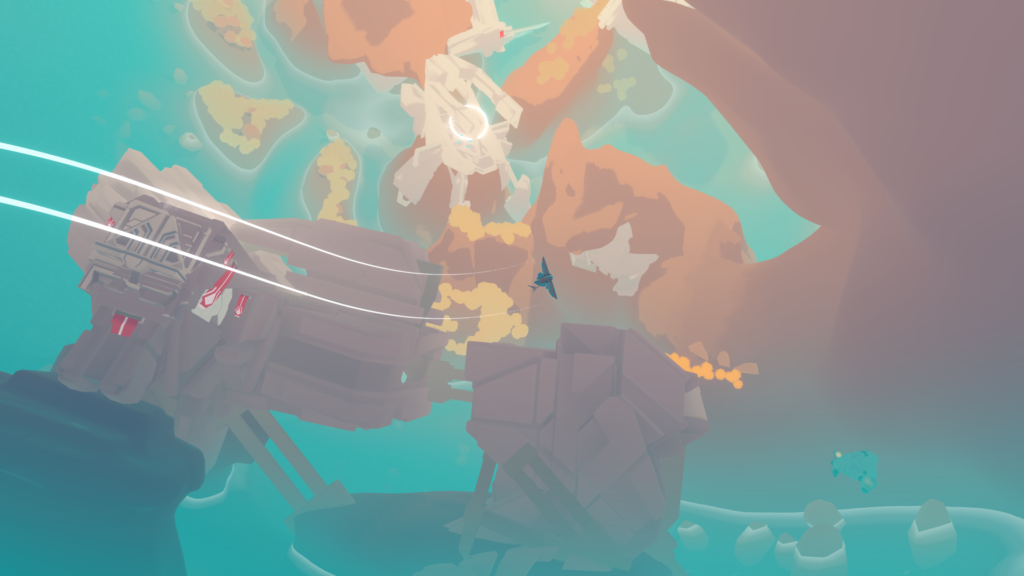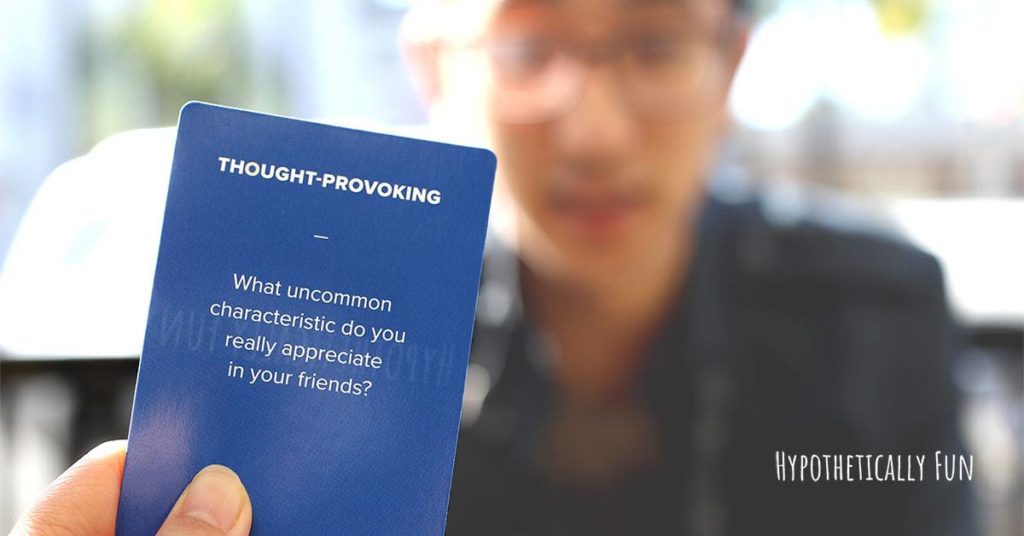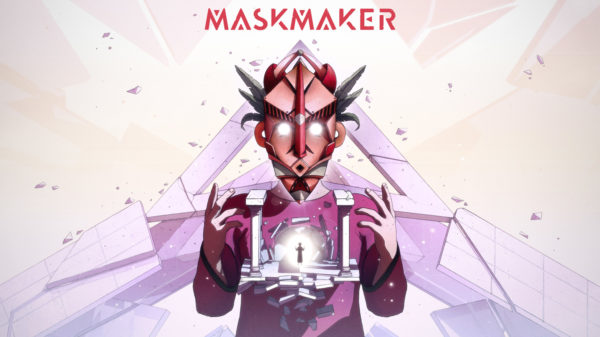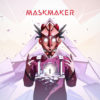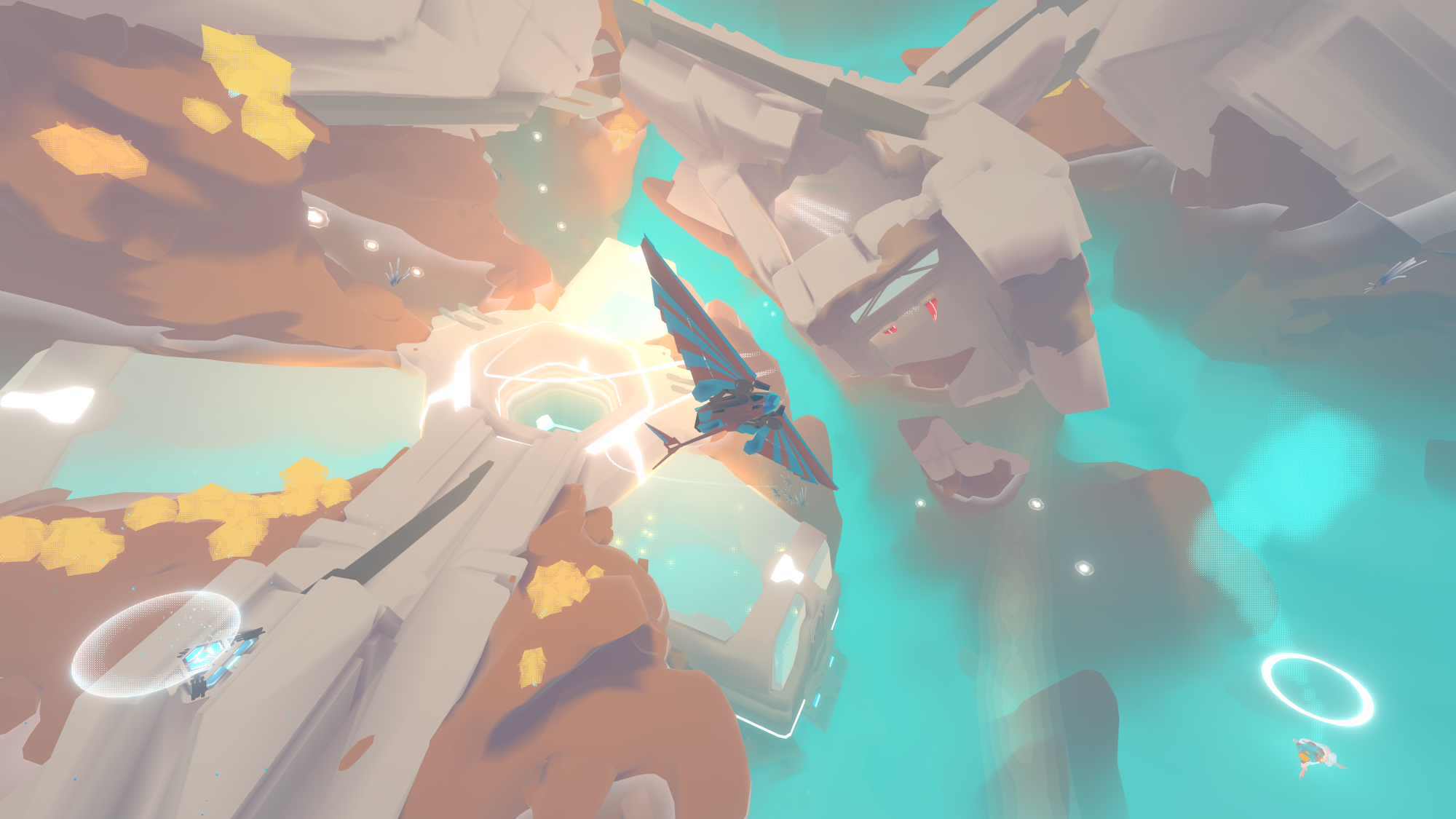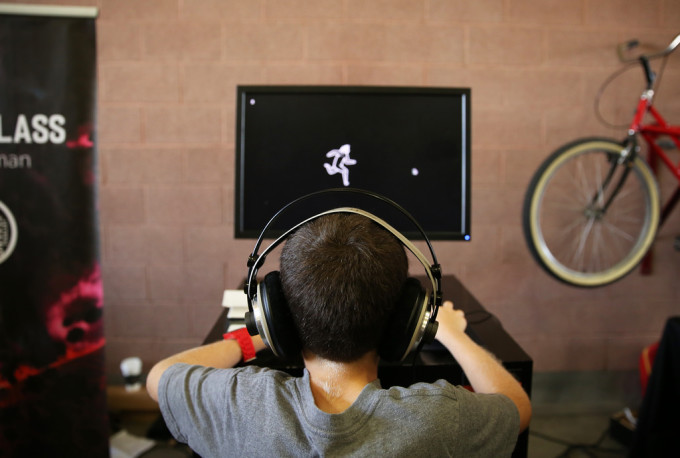IndieCade has been a mainstay in the Los Angeles indie gaming scene and this year marked its 10th anniversary. The team went to the Japanese American National Museum in Little Tokyo to check out the selections and here’s what they found.
Hacktag
Hacktag is a two-player asymmetrical co-op game where one player acts as the hacker and the other as the stealth agent. At IndieCade, this was played locally over a splitscreen which appeared to be the optimal way to communicate and strategize on the fly. Given that every instance is procedurally generated, there’s no one set path to success and it challenges players to work in the scope of their environment. This was definitely fun to watch from a spectator standpoint and I hope to see more collaborative games like this in the future (Will)
Keyboard Sports
The sounds of keyboard mashing filled the Indiecade exhibit hall as players tried Keyboard Sports for the first time. Using the entire keyboard as the controller for your adventure seems like an odd choice but it works as intended. The premise is simple, guide master QWERTY using a full range of key commands on screen and maneuver around the world comprised of quirky and interesting scenarios. What started as a prototype in a Humble Bundle has certainly come a long way. (Will)
Rhythm Doctor
Hoping to launch early next year, Rhythm Doctor is inspired by that game Austin keeps talking about. Pata-…Rhythm Heaven? Promising to be difficult in its one-button scheme, the game revolves around timing a button press on the 7th beat. Rhythm Doctor does its best to trick the player with twists and glitches as you progress into the more difficult stages. It’s an excellent way to familiarize yourself with musical concepts as well as play with a friend in local co-op multiplayer. (Will)
Yoku’s Island Express
At first glance, Yoku’s Island Express visually appealing look hides the fact that you can traverse its entire world with a pinball. Meant to be more of a relaxing adventure platformer, players meet with characters in the world and complete objectives as a postman. Moving around is rather carefree and peaceful, in a cathartic way. We played Yoku on the Nintendo Switch, which appears to be the ideal platform for going on pinball adventures. (Will)
Plunder Panic
Those familiar with the local multiplayer shenanigans of Killer Queen will find themselves at home with Plunder Panic, a passion project coming from the students and faculty at Michigan State University. Up to twelve players, six on each side fight and plunder their way to victory in multiple paths. Similar to old arcade games, figuring out strategies and reacting to tense moments brought a cool communal vibe with its accessible pick up and play feel. (Will)
While the concept of “Killer Queen you can play on PC” has a strong selling point, the demo we played of this at IndieCade was not up to par with the quality you expect from a Killer Queen arcade box. The input was laggy and the movement did not feel smooth. While the games are separated by theme, they are only barely separated by mechanics. There is still the classic military victory, but it requires 5 kills now instead of 3. There is an economic victory in the form of collecting treasure. There is a tug-of-war victory in the form of an explosive rowboat. And there is 1 new mechanic in the form of a cannonball; it takes two cannonball blasts for your team to win. (Plamen)
Vignettes
Released earlier this year for iPhone and iPad, Vignettes found its way onto the nominee floor at Indiecade 2017. The game is a mixture of casual exploration and puzzle solving that provides an easily accessible experience. You’ll rotate objects until they shapeshift as colors change to reflect different moods and settings. The puzzles become a little more complex as the game goes on but its presentation and ease of use never made the experience intimidating. Vignettes is more calming than stress inducing and it left me smiling at its simplicity. (Trevor)
The Black Widow
With a blending of murder mystery and ghost story aesthetics, The Black Widow is an unnerving experience. The mostly text based game reenacts court records from the 19th century trial of Australia’s first female serial killer. Players will watch and listen to a projection of the accused, portrayed by actor, Amber Cunliffe. Below the animated talking head is a spiritual board players will use to input one word questions after listening to the woman’s testimonials. By the end, players will determine if she was in fact guilty or unjustly executed. Hearing the actual testimonies was haunting as you listen to a woman conflicted with grief, anger and indifference to death. But the game also asks you to consider if the woman was a victim of sexist expectations. Players will begin to unpack their own prejudices as they determine the outcome of the controversial case. (Trevor)
InnerSpace
If there was an award for “Most Chill Game” of Indiecade, it would go to InnerSpace by PolyKnight Games. Players will take on the role of a cartographer piloting an aircraft through colorful caverns and dive into oceans of an ancient world. Throughout your exploration, you’ll collect relics that unveil the world’s secrets and reveal the game’s narrative. The game however allows you to do all of this at your own pace, letting players chart out their own experience with it. I found the flying to be simple but intuitive and relaxing. There’s no sense of top of bottom in the world, which frees you from having to worry if you’ll make a mistake while flying. It was almost therapeutic to feel as if the game just wanted me to unwind and not stress if I’m playing right or wrong. InnerSpace is releasing later this year for PC, Mac, Linux, PS4, Switch and Xbox One. (Trevor)
Hypothetically Fun
The last game on this list is less digital and more physical, more specifically a card based game. Hypothetically Fun lets 2-6 players break the ice with personality driven questions. One person, the judge, draws three cards and picks one to ask the group the question printed on the card.The judge will pick the answer they like the most and award the player with a point and can keep the card. Next player becomes a judge and the process repeats until the first someone collects four points/cards and wins. It sounds similar to Cards Against Humanity, but the type of questions found in Hypothetically Fun is what sets it apart. Many of the questions can spark enlightening and deep conversations with your group. Here’s a couple of example questions you can run into:
“What parts of your personality do you think have changed over time?”
“You wake up 100 years from now. What is the first thing that you google?”
The game encourages you to discuss the cards freely, allowing your group to dive deep in conversation. Hypothetically Fun is about talking to and listening to your group of friends or family, which I think is part of the spirit of Indiecade. Many of the game’s you’ll find there are about learning from each other’s experiences and opinions. Hypothetically Fun fits right in. (Trevor)
Photos by Trevor Stamp

